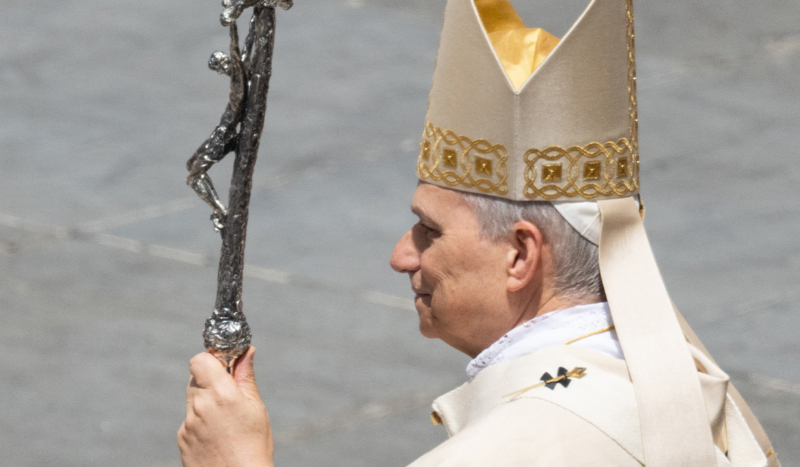
Catholic Church England and Wales / Flickr
Young couples who are unmarried but living together need to be shown how good God’s gift of sacramental marriage is, Pope Leo XIV said in a recent address.
“Ours is a time marked by a growing search for spirituality, particularly evident in young people, who are longing for authentic relationships and guides in life,” Pope Leo said May 28 to participants in the seminar “Evangelizing with the Families of Today and Tomorrow: Ecclesiological and Pastoral Challenges.”
The participants gathered in light of the Jubilee for Families, Children, Grandparents, and the Elderly for the seminar, organized by the Dicastery for Laity, Family and Life.
It is crucial, the Pope told the participants, that the Christian community is attentive in seeing what challenges are faced in the present world and cultivating every person’s longing for faith.
He warned that “privatizing” the faith hinders families and people who are spiritually distant from encountering and “knowing the richness and gifts of the Church, a place of grace, fraternity, and love.”
“As a result, despite their healthy and holy desires, while they sincerely seek ways to climb the exciting upward paths to life and abundant joy, many end up relying on false footholds that are unable to support the weight of their deepest needs and cause them to slip back down, away from God, shipwrecked on a sea of worldly concerns,” Pope Leo said.
He said that this includes parents, children, and young persons “who find themselves at times alienated by illusory lifestyles that leave no room for faith, and whose spread is facilitated by the wrong use of potentially good means — such as social media — yet prove harmful when used to convey misleading messages.”
The Church’s pastoral and missionary work aims to save persons from deadly seas through encounters with Jesus Christ, Pope Leo said. He then spoke about how Christians can help young couples who are cohabitating.
“Perhaps many young people today who choose cohabitation instead of Christian marriage in reality need someone to show them in a concrete and clear way, especially by the example of their lives, what the gift of sacramental grace is and what strength derives from it. Someone to help them understand ‘the beauty and grandeur of the vocation to love and the service of life’ that God gives to married couples,” he continued, quoting Pope St. John Paul II’s 1981 apostolic exhortation Familiaris Consortio.
Many parents also need communities that can support raising their children in the faith and encountering Jesus, especially by providing environments “where the communion of love, which finds its ultimate source in God, takes place,” he added, quoting a 2015 General Audience address from Pope Francis.
He also warned against reducing the Christian life to merely a set of rules based on the example of Christ, rather than a transformed life through Baptism and encounter with Jesus.
“Faith is primarily a response to God’s love, and the greatest mistake we can make as Christians is, in the words of Saint Augustine, ‘to claim that Christ’s grace consists in his example and not in the gift of his person,’” Pope Leo said.
When the Christian life is regarded as mainly a set of rules, bishops and lay persons are called to be “fishers of families,” of couples, of young adults, of children, and of men and women, “so that all may encounter the one Savior,” he said, adding that they must learn how to walk with these families and draw them to the faith, which they in turn will share with other families.
Further, though families struggle with many difficulties, “the Gospel of the family also nourishes seeds that are still waiting to grow, and serves as the basis for caring for those plants that are wilting and must not be neglected,” Pope Leo said, quoting Pope Francis’ apostolic exhortation Amoris Laetitia.
Concluding, Pope Leo said, “What great need there is to promote an encounter with God, whose tender love values and loves the story of every person! It is not a matter of giving hasty answers to difficult questions, but of drawing close to people, listening to them, and trying to understand together with them how to face their difficulties.”
“And this requires a readiness to be open, when necessary, to new ways of seeing things and different ways of acting, for each generation is different and has its own challenges, dreams and questions,” he said. “Yet amid all these changes, Jesus Christ remains ‘the same yesterday and today and forever’ (Heb 13:8). Consequently, if we want to help families experience joyful paths of communion and be seeds of faith for one another, we must first cultivate and renew our own identity as believers.”
The full address can be read here.

